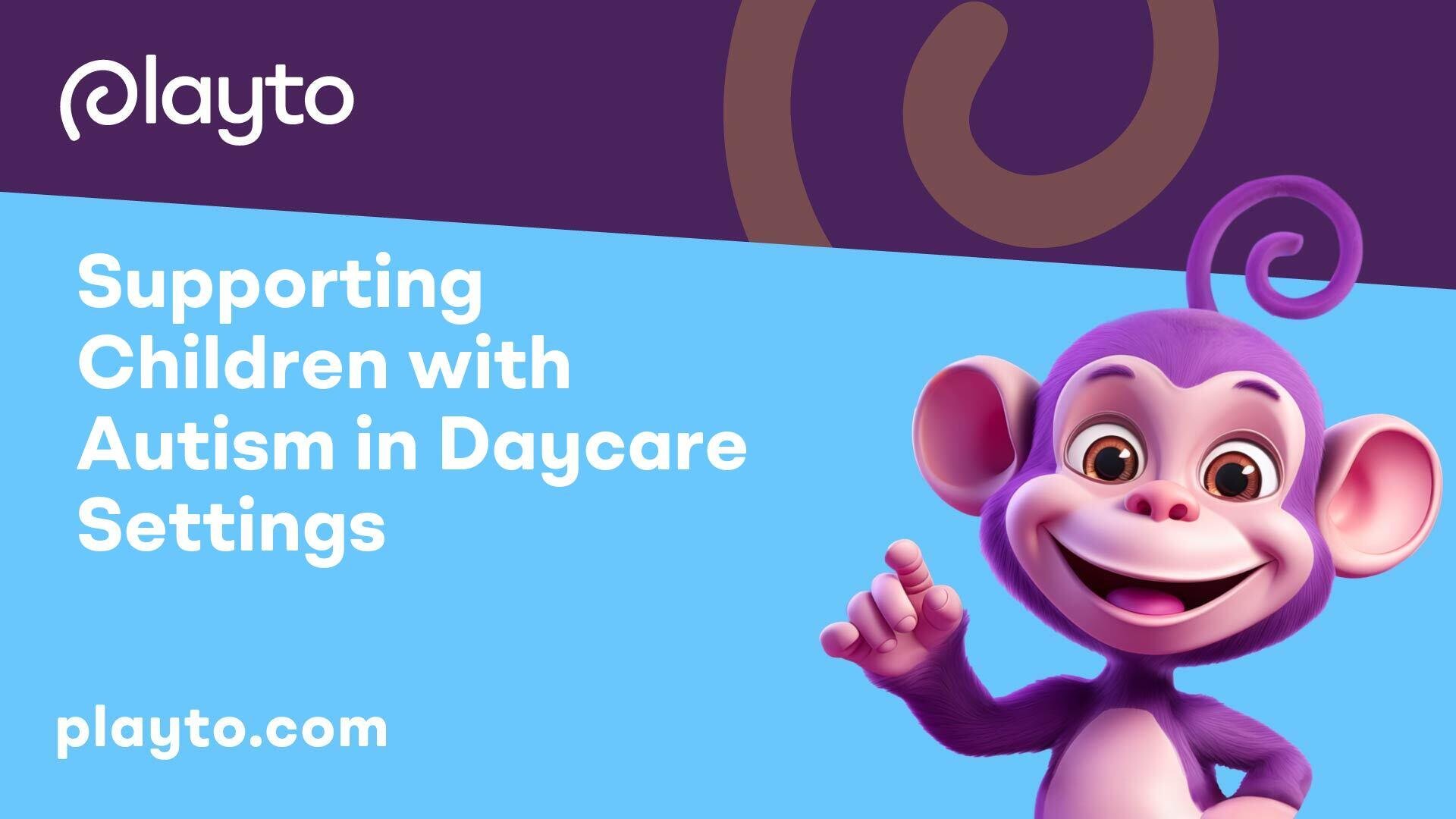
Understanding Children with Autism
When it comes to supporting children with autism in daycare settings, it is essential to have a deep understanding of the characteristics of autism and the significance of providing individualized support to each child.
Characteristics of Autism
Children with autism spectrum disorder (ASD) often exhibit challenges in social interactions, communication, sensory sensitivities, and repetitive behaviors. According to Rainbow Therapy, they may struggle with socializing and communicating with others, may not engage in pretend play, and might have specific sensory sensitivities. Educators and caregivers play a pivotal role in creating inclusive environments by familiarizing themselves with each child's unique preferences and needs, ensuring that early childhood education and care settings are tailored to support their developmental journey.
Importance of Individualized Support
The impact of autism varies significantly from one child to another, emphasizing the need for personalized approaches to support every child effectively. Each individual with autism has distinct strengths and challenges, requiring tailored strategies to cater to their specific needs. Inclusive practices, such as breaking down tasks, implementing visual supports like picture schedules, and establishing sensory-friendly spaces, are crucial components of providing effective support for children with autism in daycare settings, as mentioned by Rainbow Therapy.
Understanding the unique characteristics of autism and the importance of individualized support sets the foundation for creating nurturing environments that promote the well-being and development of children with autism in daycare settings. By embracing inclusive practices and recognizing the individuality of each child, caregivers and educators can enhance the overall experience and foster a conducive learning environment for all children.

Supporting Children in Daycare
When it comes to supporting children with autism in daycare settings, creating a nurturing and understanding environment is paramount. Inclusive environments, tailored sensory sensitivities and interventions, as well as effective behavior management strategies play a significant role in ensuring the well-being and development of children with autism.
Inclusive Environments
Inclusion is a fundamental approach to supporting children with autism in daycare settings. By fostering an inclusive environment that embraces diversity and individual differences, children with autism can feel valued, accepted, and understood. Strategies such as breaking down tasks into smaller, manageable steps, incorporating visual supports like picture checklists or schedules, and designing sensory-friendly spaces are effective in promoting the child's participation and engagement [1].
Sensory Sensitivities and Interventions
Children with autism often experience sensory sensitivities that can impact their daily experiences in daycare settings. Addressing these sensitivities through targeted interventions is crucial for creating a comfortable and supportive environment. Implementing sensory-friendly strategies, such as providing sensory tools, creating calming spaces, and using noise-reducing headphones, can help children regulate their sensory experiences and enhance their overall well-being [1].
Behavior Management Strategies
Effective behavior management is key to promoting positive interactions and supporting the social and emotional development of children with autism in daycare. Strategies that focus on promoting social skills, emotional regulation, and conflict resolution are essential. Setting clear expectations, using rewards for positive behavior, supporting emotional identification, and managing emotions during discipline are critical components for creating a supportive and structured environment for children with autism [1].
By incorporating inclusive practices, addressing sensory sensitivities, and implementing appropriate behavior management strategies, daycare providers can effectively support children with autism in their care. These proactive measures not only benefit the child with autism but also contribute to the overall positive daycare experience for all children in the setting.

Caregiver Training Programs
Ensuring that caregivers in daycare settings are equipped with the necessary skills and knowledge to support children with autism is paramount. Two prominent caregiver training programs that are beneficial in this regard are the Caregiver Skills Training (CST) Program and the Autism Response Team (ART).
Caregiver Skills Training (CST) Program
The Caregiver Skills Training (CST) program, developed by the World Health Organization (WHO) with support from Autism Speaks, is an evidence-based program designed to empower parents and caregivers of children with developmental delays or disabilities, including autism. The program focuses on teaching caregivers day-to-day skills that are crucial in helping children reach their full potential. These skills encompass communication, engagement, positive behavior reinforcement, and daily living skills [2].
One of the distinctive features of the CST program is that it is provided at no cost to families. By participating in this program, caregivers can enhance their problem-solving abilities, self-care practices, confidence levels, and overall well-being. The CST program not only equips caregivers with the tools to aid their child's development through play and routines but also emphasizes the importance of caregiver stress reduction and self-care [2].
Benefits of CST Program
The CST program offers a range of benefits to caregivers, children with autism, and families as a whole. By participating in the program, caregivers acquire practical strategies to support their child's unique needs, improve communication techniques, and enhance the child's engagement in daily activities. Moreover, through the problem-solving and self-care components of the program, caregivers can reduce stress levels and promote their own well-being, which positively impacts their ability to care for children with autism effectively.
The CST program not only aims to enhance caregivers' skills but also strives to create a supportive environment that fosters the overall development and progress of children with autism. It is a comprehensive training program that has the potential to significantly improve the quality of care provided to children with autism in daycare settings.
Autism Response Team (ART)
In addition to caregiver skills training programs, the Autism Response Team (ART) by Autism Speaks plays a crucial role in providing guidance and support to individuals with autism, their families, and caregivers. The ART offers specialized assistance in connecting individuals with autism to valuable information, tools, and resources that are essential in understanding and managing various aspects related to autism care.
By leveraging the resources and expertise of the ART, caregivers in daycare settings can access guidance on effective strategies for supporting children with autism, addressing specific challenges, and implementing evidence-based practices in their caregiving routines. The ART serves as a valuable resource for caregivers seeking guidance and assistance in navigating the complexities of caring for children with autism in daycare environments.
Through the combined efforts of caregiver training programs like the CST Program and support services provided by initiatives such as the ART, daycare settings can create inclusive and supportive environments that cater to the unique needs of children with autism, ensuring their holistic development and well-being.
Early Intervention Services
Supporting children with autism in daycare settings often involves accessing early intervention services that cater to their specific needs. These services are vital in promoting the development of skills typically acquired during the early years of life. Understanding the eligibility criteria, special education services, and financial assistance available for families is crucial in providing comprehensive support for children with autism.
Eligibility and Support Programs
Early intervention services target infants and toddlers under the age of three who exhibit developmental delays or disabilities. These services focus on assisting children in learning skills that are typically developed within the first three years of life. Accessing these services early can significantly impact the child's developmental trajectory and improve their long-term outcomes. For detailed information on eligibility and support programs, visit Childcare.gov.
Special Education Services
Special education services play a crucial role in supporting children with disabilities between the ages of three and 21. These services provide tailored and individualized instruction to meet the unique needs of each child with a disability, ensuring that they can access a free and appropriate education. Identifying the special needs of the child and addressing how it impacts their learning is essential for determining eligibility for special education services. For further insights into special education services, refer to Childcare.gov.
Financial Assistance for Families
Financial assistance can be a significant relief for families raising children with autism. The Supplemental Security Income (SSI) program offers financial support to help cover basic needs for children with disabilities, including those with mental or physical impairments. To qualify for SSI benefits, caregivers must demonstrate limited income and resources. Accessing financial assistance can alleviate some of the financial burdens associated with caring for a child with autism. To explore further details regarding financial assistance programs, visit Childcare.gov.
By understanding the eligibility criteria for early intervention services, the provisions of special education services, and the availability of financial assistance programs, caregivers and families can ensure that children with autism receive the necessary support and resources to thrive in daycare settings. These services are instrumental in addressing the unique challenges that children with autism may encounter and fostering their holistic development.
Visual Supports and Routine
In daycare settings, implementing visual supports and routines plays a crucial role in supporting children with autism. These strategies, such as visual schedules and checklists, along with consistent routines and transitions, are key components in creating a structured and supportive environment for these children.
Visual Schedules and Checklists
Visual schedules and checklists are effective tools to support children with autism in understanding daily expectations and routines. By incorporating picture-based schedules that outline activities and tasks in a sequential order, children can better comprehend what is planned for the day. These visual aids provide a clear visual representation of the day's events, helping children navigate through their day with predictability and understanding.
Visual supports like picture checklists not only guide children with autism through their daily activities but also aid in enhancing communication and comprehension. These visuals can benefit not only children with special needs but also their peers in the daycare setting by creating a cohesive and inclusive learning environment.
Consistent Routines and Transitions
Establishing consistent routines and transitions is essential for children with autism to feel secure and confident in their environment. Consistency provides a sense of predictability, which can help reduce anxiety and promote a sense of stability for these children.
Smooth transitions between activities, such as signaling upcoming changes and using visual cues to indicate transitions, can aid in preparing children for shifts in their day. By maintaining a consistent schedule and predictable routines, children with autism can better adapt to their surroundings and feel supported in navigating the daycare environment.
Incorporating visual supports and routines, as described by Rainbow Therapy, can significantly benefit children with autism in daycare settings. These strategies provide structure, reduce anxiety, and promote understanding, ultimately enhancing the overall quality of care and support for children with autism in daycare settings.
Evidence-Based Practices
When it comes to supporting children with autism in daycare settings, utilizing evidence-based practices (EBPs) is essential to ensure effective interventions and positive outcomes. Understanding the most effective strategies for children with autism and implementing EBPs correctly can significantly impact the child's development and well-being.
Effective Strategies for Children with Autism
Educators and caregivers can follow a structured process to select and implement evidence-based practices tailored to the individual needs of each child with autism. This process typically involves several key steps, including:
- Identifying the Target Behavior: Understanding the specific behaviors or areas of development that require intervention is the first crucial step in selecting an appropriate EBP.
- Gathering Baseline Data: Collecting detailed information about the child's current behavior and performance helps in establishing a baseline against which progress can be measured.
- Setting Goals in the Individualized Education Program (IEP): Clearly defining goals and objectives in the child's IEP ensures that interventions are aligned with the child's individual needs and developmental milestones.
- Determining Suitable EBPs: Based on the identified target behaviors and goals, educators can determine which evidence-based practices are most suitable for addressing the specific needs of the child.
High-leverage practices (HLPs) such as small-group instruction, functional behavior assessments, peer-assisted strategies, and organized learning environments have shown positive effects on student performance and are often instrumental in supporting children with autism spectrum disorder (ASD).
Implementing EBPs in Daycare Settings
Once the appropriate EBPs have been identified, it is crucial to ensure proper implementation and fidelity to achieve the desired outcomes. Educators and caregivers should closely monitor the effectiveness of the chosen practices through systematic data collection and evaluation.
After implementing an EBP, continuous data collection is essential to assess its impact on the child and determine if adjustments or additional interventions are necessary for better results. Adapting the practice based on data analysis and trying alternative EBPs when needed can enhance the effectiveness of interventions in daycare settings.
By incorporating evidence-based practices and continuously evaluating their efficacy, daycare providers can create a supportive and inclusive environment that maximizes the potential for children with autism to thrive and develop essential skills in a daycare setting.
Challenges in Daycare Settings
When discussing the inclusion of children with autism in daycare settings, it's crucial to address the challenges that may arise. This section focuses on the expulsions of autistic children from daycare, strategies for addressing expulsion rates, and the importance of implementing autism-affirming interventions.
Expulsions of Autistic Children
Research conducted at the University of California, Riverside revealed that approximately 16 percent of autistic children, roughly one in six, are expelled from preschool programs, with an average age of 3.3 years old. Autistic children are particularly at risk of expulsion due to their unique characteristics, including difficulties with social communication and repetitive behaviors, which may be misinterpreted as misbehavior. Sadly, the majority of expulsions stem from behavioral issues, highlighting the need for a better understanding of autism within daycare settings.
Addressing Expulsion Rates
The high rate of expulsions among autistic children highlights the pressing need for proactive measures to address this issue. It is essential to provide adequate support and resources to daycare centers to prevent the expulsion of children with autism. To mitigate expulsion rates, early identification of autism, tailored interventions, and ongoing training for daycare staff are imperative.
Increasing educator awareness about the needs of autistic children and fostering a supportive and inclusive environment can significantly reduce the likelihood of expulsions. By implementing strategies that promote understanding and acceptance, daycare centers can create a more inclusive and nurturing environment for all children.
Autism-Affirming Interventions
To combat expulsions of autistic children from daycare, researchers Jan Blacher and Abbey Eisenhower have developed an autism-affirming intervention aimed at helping teachers better comprehend and support children with autism in general education classes. This intervention focuses on enhancing teacher knowledge, fostering positive relationships with autistic children, and promoting inclusive practices that cater to the unique needs of each child.
By incorporating such interventions, daycare settings can create a more empathetic and accommodating environment for children with autism. It is crucial to empower educators with the necessary tools and strategies to support the diverse needs of all children and ensure the successful integration of autistic children in daycare settings. Through collaborative efforts and a commitment to inclusivity, daycare centers can effectively address the challenges faced by autistic children and promote a supportive and welcoming environment for every child.
State Initiatives and Family Support
In their efforts to support children with autism in daycare settings, various state initiatives and family support programs have been developed. These programs play a crucial role in ensuring that children with special needs receive the necessary care and resources. Let's explore the PROMISE Program in Ohio, consulting services for child care centers, and the challenges faced by parents in this context.
PROMISE Program in Ohio
Ohio Governor Mike DeWine introduced the PROMISE program in fall 2023 to enhance the accessibility of quality child care for children with special needs. The primary goal of this program is to credentialed special needs caregivers, provide specialized training and support, and establish a special designation in the child care database for easy parental access [4].
As of the latest update, 39 out of 131 five-star rated child care centers in Cuyahoga County have been awarded the Inclusive Child Care Program designation. This designation signifies that staff members have attained the Professional Early Childhood Inclusion Credential, demonstrating their expertise in catering to children with diverse needs.
Consulting Services for Child Care Centers
In Cuyahoga County, institutions such as Starting Point, Applewood, and Beech Brook offer consulting services to child care centers to support children with special needs. These consultation services extend a helping hand to children with cognitive or physical developmental delays, providing valuable guidance and expertise. However, due to resource constraints, consultants are only available for about an hour every two weeks.
By offering consulting services, these organizations facilitate the creation of inclusive and supportive environments within child care centers, ensuring that every child, including those with special needs, receives the care and attention they deserve.
Challenges Faced by Parents
Parents of children with autism encounter various challenges when seeking appropriate child care solutions. Individuals like Ingrid Nolan struggle to find consistent child care for older children with disabilities, emphasizing the difficulties in finding suitable options. The high costs associated with child care for children with disabilities can sometimes exceed or match a parent's income, influencing their professional paths.
Navigating the complexities of child care for children with special needs can be emotionally and financially taxing for parents. Issues such as finding qualified caregivers, affordability, and accessibility contribute to the challenges faced by parents of children with autism. Recognizing and addressing these obstacles is essential to providing comprehensive support for both children and their families.
References
[1]: https://www.rainbowtherapy.org/preschool-for-children-with-autism-a-guide-for-parents
[2]: https://www.autismspeaks.org/caregiver-skills-training-program
[3]: https://iris.peabody.vanderbilt.edu/module/asd2/cresource/
[4]: https://www.cleveland.com/news/2024/01/the-daunting-child-care-challenges-for-kids-with-special-needs.html
